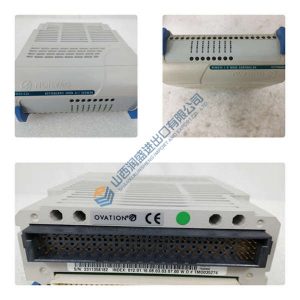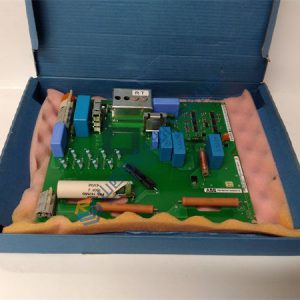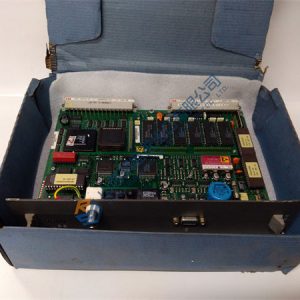Description
Detailed parameter table
| Parameter name | Parameter value |
|---|---|
| Product model | cDAQ-9178 |
| Manufacturer | National Instruments (NI) |
| Product category | CompactDAQ USB Chassis |
| Slots for C Series Modules | 8 |
| Interface Type | USB 2.0 Hi-Speed (Type B connector) |
| Power Input | 9-30 VDC, 15 W max |
| Counters/Timers | 4 x 32-bit general-purpose |
| Operating Temperature | -40 to 70 °C (with modules) |
| Dimensions (L x W x H) | 254 x 88.1 x 48.4 mm (10 x 3.47 x 1.91 in.) |
| Relative Humidity | 10-90% noncondensing |
| FIFO Buffer Size | 1,023 samples per slot (with 8 modules) |
| Vibration Tolerance | 5 grms (5-500 Hz, random) |
Product introduction
The NI cDAQ-9178 represents a pinnacle of portable data acquisition innovation from National Instruments, engineered as an eight-slot CompactDAQ USB chassis for dynamic sensor measurement systems. At its core, the NI cDAQ-9178 delivers plug-and-play connectivity via USB 2.0, orchestrating precise timing, synchronization, and high-speed data transfer across diverse C Series I/O modules. Positioned within the versatile CompactDAQ platform, this chassis empowers engineers to assemble customized solutions blending analog inputs, digital outputs, and specialized sensing capabilities—all while maintaining the rugged portability essential for field deployments. Its role in automation ecosystems is transformative, serving as a centralized hub that bridges physical sensors to analytical software, thereby accelerating insights in real-time monitoring and control applications.
Delving deeper, the NI cDAQ-9178 integrates four 32-bit counters/timers accessible via dual BNC connectors, facilitating advanced triggering and clock sharing for synchronized multi-channel operations. This technical sophistication aligns with NI’s vision for scalable, software-defined instrumentation, where the chassis supports up to 1,023-sample FIFO buffers per slot when fully populated, ensuring no data loss during bursts of high-frequency acquisition. In broader automation contexts, the NI cDAQ-9178 enhances system value by reducing setup complexity and enabling seamless integration with LabVIEW or other NI software suites, fostering rapid prototyping and validation in resource-constrained environments.
Ultimately, the NI cDAQ-9178 underscores National Instruments’ dedication to empowering interdisciplinary teams with tools that evolve alongside technological demands. By combining compact form factor with enterprise-grade performance, it not only streamlines data workflows but also unlocks efficiencies in test, measurement, and industrial control, positioning users at the forefront of data-driven decision-making.
Core advantages and technical highlights
The NI cDAQ-9178 distinguishes itself through functional innovation in modular data acquisition, where its eight-slot architecture accommodates a hybrid array of C Series modules for simultaneous analog, digital, and counter-based measurements. This flexibility supports diverse protocols like strain gauge excitation or thermocouple conditioning without custom hardware, while built-in signal routing via the onboard backplane enables shared triggers across modules—ideal for phase-coherent captures in vibration analysis. The embedded four-channel counter/timer subsystem further innovates by offering gateable event counting up to 100 MHz, programmable for pulse-width modulation or frequency generation, thus extending the chassis beyond mere aggregation to active signal processing.
Performance prowess defines the NI cDAQ-9178, boasting aggregate throughputs exceeding 1 MS/s depending on module configurations, with deterministic USB 2.0 transfers ensuring low-jitter synchronization critical for dynamic events like acoustic emissions. Its FIFO buffering—scaling from 2,047 samples per slot in four-module setups to 1,023 in full eight-slot mode—mitigates overruns in streaming applications, while the 9-30 VDC input range sustains operations on battery packs or vehicle power, delivering up to 15 W without thermal throttling. This efficiency, paired with a quiescent current under 1 A, optimizes for untethered deployments, where every watt counts toward extended runtime in remote sensing.
Reliability permeates the NI cDAQ-9178‘s design, certified to IEC 60068-2 for environmental extremes including 5 grms random vibration and 50 g shocks, alongside IP30 ingress protection for dust-laden atmospheres. Operating flawlessly from -40 to 70 °C with modules installed, it incorporates overvoltage safeguards up to 60 VDC and ESD immunity to 8 kV, minimizing failure points in harsh locales like offshore platforms. NI’s adherence to RoHS and REACH standards ensures eco-compliant longevity, with MTBF exceeding 500,000 hours per MIL-HDBK-217F calculations.
Compatibility elevates the NI cDAQ-9178 within expansive ecosystems, hot-swappable with over 200 C Series modules and backward-compatible with legacy NI-DAQmx drivers for effortless migrations. It interfaces natively with Windows, Linux RT, and embedded hosts via the locking USB cable, supporting scatter-gather DMA for burst transfers, while BNC I/O fosters integration with legacy oscilloscopes or function generators.
Ease of use crowns the NI cDAQ-9178 as an engineer’s ally, with intuitive LED diagnostics for power, USB link, and slot status, plus zero-configuration recognition in NI MAX software for drag-and-drop tasking. Panel-mount brackets and DIN-rail adapters streamline field installations, and the included desktop supply with regional cords accelerates out-of-box productivity, making sophisticated acquisition accessible without steep learning curves.
Typical application scenarios
In automotive testing bays, the NI cDAQ-9178 excels at capturing multi-sensor data during endurance simulations, where engineers deploy it with accelerometer and strain modules to monitor chassis vibrations under simulated road loads. In these high-stakes environments, its robust shock tolerance and wide temperature range handle the thermal swings from engine bays, delivering synchronized 100 kS/s streams for fatigue analysis that pinpoint failure precursors—directly addressing OEM demands for accelerated validation cycles that shave weeks off development timelines.
Pharmaceutical R&D labs leverage the NI cDAQ-9178 for precision bioreactor monitoring, integrating pH, dissolved oxygen, and pressure modules to track microbial growth in real time amid sterile, humidity-laden conditions. Its noncondensing humidity resilience and FIFO buffering ensure uninterrupted logging during 72-hour fermentations, enabling compliance with FDA 21 CFR Part 11 through timestamped data exports to LabVIEW. This setup fulfills researchers’ needs for scalable, portable validation of process parameters, enhancing yield optimization without compromising data integrity in regulated workflows.
Renewable energy sites, such as wind turbine nacelles, find the NI cDAQ-9178 indispensable for structural health monitoring, combining tilt and load cell modules to detect blade imbalances amid gusty, subzero exposures. The chassis’s extended -40 °C operation and vibration immunity sustain continuous acquisition over Ethernet-extended USB links, alerting maintenance teams via threshold-based triggers. This proactive intelligence meets operators’ imperatives for predictive upkeep, curtailing downtime in remote assets and bolstering energy output reliability against elemental adversities.
Related model recommendations
- cDAQ-9174: A compact four-slot counterpart in the same CompactDAQ family, ideal for space-constrained applications as a downsized alternative to the NI cDAQ-9178 with identical USB interface and counter capabilities.
- cDAQ-9188: An eight-slot Ethernet variant offering network-based remote access, serving as an upgrade from the NI cDAQ-9178 for distributed systems requiring wired connectivity over USB.
- cDAQ-9171: Single-slot chassis for minimalistic setups, functioning as a portable entry point that shares module compatibility with the NI cDAQ-9178 for scalable expansion.
- cRIO-9045: Integrated controller with eight slots in the CompactRIO series, providing real-time processing as a rugged evolution from the NI cDAQ-9178 for embedded control tasks.
- cDAQ-9132: Rugged eight-slot controller with onboard CPU, acting as a standalone upgrade to the NI cDAQ-9178 by eliminating host PC dependency in field deployments.
- cDAQ-9184: Four-slot Ethernet chassis for networked portability, complementing the NI cDAQ-9178 in hybrid USB/Ethernet architectures for extended range monitoring.
- cDAQ-9191: Wireless eight-slot gateway extending the NI cDAQ-9178‘s reach via 802.11n, perfect for untethered sensor networks in expansive industrial zones.
Installation, commissioning and maintenance instructions
Installation preparation
Prior to deploying the NI cDAQ-9178, assess the site for compliance with indoor use guidelines: maintain ambient conditions between -40 and 70 °C, 10-90% relative humidity noncondensing, and avoid direct sunlight or conductive contaminants to uphold electrical isolation. Assemble a toolkit comprising a #2 Phillips screwdriver for module retention, a multimeter for continuity checks, anti-static mats, and the provided AEL15US12 power supply with appropriate regional cord—ensuring a NEC Class 2 source rated 9-30 VDC at 15 W max. Precautions encompass verifying USB 2.0 host compatibility (self-powered hubs if chaining), grounding all metallic enclosures, and pre-labeling C Series modules for slot assignment; implement lockout/tagout on nearby circuits to prioritize personnel safety, while ferrule-crimped wires on terminal blocks enhance connection reliability and streamline initial power-up sequencing.
Maintenance suggestions
Routine upkeep for the NI cDAQ-9178 entails monthly visual scans for dust accumulation on vents and connectors, coupled with NI MAX self-tests to validate USB enumeration and counter functionality, preempting drift in calibration-sensitive setups. Troubleshooting leverages onboard LEDs—flashing amber signals slot faults, resolvable by reseating modules or rebooting via power cycle—while DAQmx error logs in software pinpoint USB bandwidth issues, often mitigated by shortening cable runs under 5 m. For component swaps, like replacing a faulty C Series module, de-energize the chassis, extract via the release lever, and insert spares with matching firmware to preserve synchronization; stockpile OEM consumables such as locking USB cables to avert obsolescence. Quarterly firmware flashes through NI Package Manager and environmental audits in vibration-prone areas sustain peak fidelity, cultivating a regimen that propels the NI cDAQ-9178 toward a 10-year service horizon with minimal interventions.
INDRAMAT REXROTH 2AD132C-B05OAE-BS27-A2N1
Indramat 090C-0-GD 4C
INDRAMAT MAC112B-0-PD-2-C/130-A-2/S018
Indramat MDC3.41B/MMA-1
Rexroth MAC112D-ED-1B/130-A-1/-100625
INDRAMAT TVD1.2-08-03 TVD-1.2-08-03
INDRAMAT NFM 1.2-08
INDRAMAT TVM 1.2 TDM 2.1
Indramat TVR 2.2-F030-03 TVR2.2-F030-03
INDRAMAT 2AD132B-B05OLE-BS08-C2N1
INDRAMAT HVR03.2-W045N
Indramat TDM 1.2-100-300-W1-000 TDM1.2-100-300-W1-000
INDRAMAT MKD071B-035-KG0-KN
Indramat TBM 1.2-40-W1/220
INDRAMAT TDM 3.2-020-300-W0 TDM3.2-020-300-W0
INDRAMAT CLC-D2.1 CLCD2.1 CLC-D21












